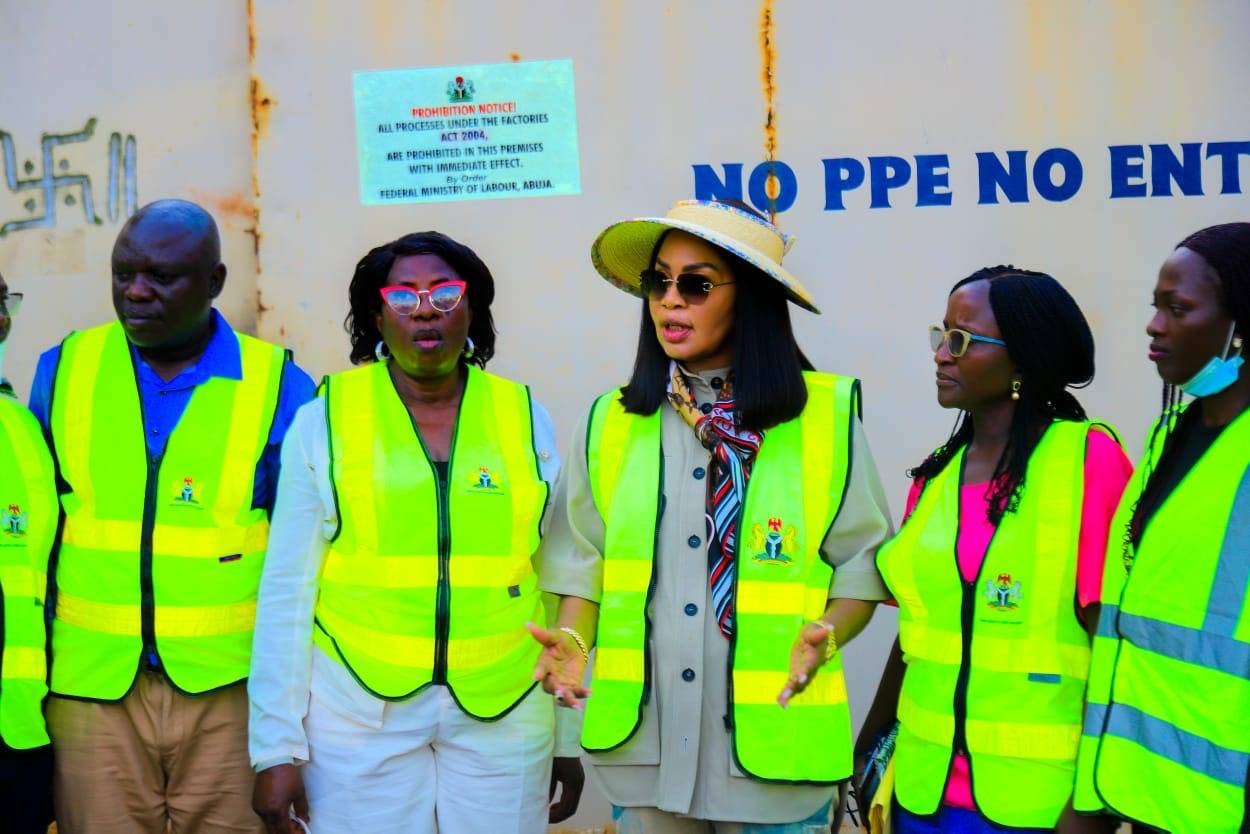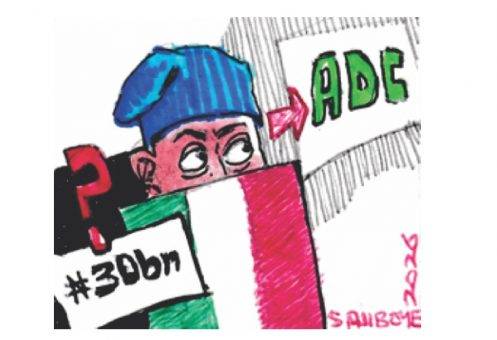By Abolaji Adebayo
The Federal Government has on Monday shut down operations and sealed two companies located in the Ogijo area of Ogun State—True Metals Nigeria Limited and Phoenix Steel Mills Limited—for serious safety infractions and environmental degradation.
True Metals Nigeria Limited, an export group dealing in non-ferrous metals such as lead products, lead alloys, lead ingots, and copper products, was found to be recycling used batteries into lead for export.
Both companies were deemed culpable for compromising worker safety and maintaining unhealthy working conditions.
While sealing the facilities, the Minister of State for Labour and Employment, Nkeiruka Onyejocha, stated that the companies had fundamentally compromised the health and safety standards required to operate in Nigeria, insisting they must remain sealed until they rectify all identified issues.
She explained: “As the Minister of State for Labour, Occupational Safety and Health is one of the mandates of my ministry. So routinely, we come to check factories and see that they’re complying with all the safety measures for our workers. This is one of those routine checks.”
When asked for her assessment of the situation, the Minister expressed her profound disappointment, saying: “I’m not happy. I’m disappointed because the issue of safety in the factories we visited is not their business. I think they’re more focused on making money, no matter what. The issue of lead has been reported. We have carried out tests. We have sent people to caution them that we will not say we are creating jobs while we are killing our people. There’s no price for life, because we don’t have the opportunity to revive anybody once they die. So prevention is better than cure. They believe, ‘This is Nigeria, they can’t do anything,’ and they keep doing what they’re doing.
“After several warnings and they were not adhering, I decided to come and see for myself. I saw that all the things we’ve told them in the past, they have not even taken one step. That’s why, after the inspection, we had no other option but to seal them, and we have asked them to do the needful. This is not politics. We don’t do politics with business, neither do we do politics with the lives of our citizens.”
She further detailed the specific dangers, stating: “Under the new hope agenda, there must be automation. At this age and present time, you’re bringing batteries and opening them with your hands, taking the contents out.
“The emission alone can kill anybody. It’s only when they see that you are around that they go and get nose masks, and that is wrong. Before we came, we had sent people to survey and look at what they are doing. There was nothing like safety measures. When we came, we saw the floor, even right where we are now. Look at it, will you say this factory belongs to anybody and we are supervising? So that’s what we have to do. Safety is a very great concern.”
The Minister clarified that the required action is for the companies to return to the drawing board and implement all the safety measures they agreed to before their operating licenses were issued.
She emphasised: “It’s not for them to do it if they don’t want to; if they don’t do it, they won’t reopen. There are many people looking for licenses. The economy is bad, but when you do the right thing, you get more money because you attract investment and attract customers. There are a lot of ways to do this. Get it right. If other countries are getting it right, why will you come here and decide that you can do it anyhow?”
Offering advice to other factory owners, the Minister issued a stern warning, saying, “We are not going to leave them sleeping. We are continuing with inspection, and if we find you wanting, we will enforce the same. They need to do what is necessary to carry out effective operations, and they know what those things are. Occupational Safety and Health has rules. You must take care of every worker. There must be a fair wage.
“In some places, they don’t even have employment letters. They are taking workers and paying them some 3,000 or 4,000 Naira a day. How do you justify that? In most factories, they dehumanize Nigerians; they treat them like they are not human beings. To the extent that you’re giving somebody a battery to handle without any protective gear for their hands. A person has to do it just because it is a petty job, so it is unacceptable.”













